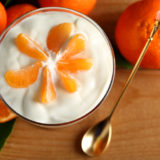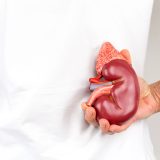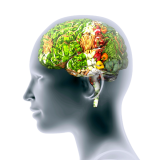Available in most areas year-round, bananas are deliciously sweet treats. Because of their reputation as a fruit loaded with sugar (although it is natural sugar), the fantastic health benefits of bananas are often overlooked. For anyone whose cardiovascular health is a predominant concern, bananas’ high potassium and fiber content make this fruit an absolute must.
Once a rare and costly luxury item unknown outside their native tropics, bananas are believed to be the world’s best-selling fruit. Perhaps because it tastes like desert, is relatively affordable or because it is prepackaged in its own biodegradable jacket, most of us are familiar with the sweet, slightly astringent, firm and creamy flesh of bananas.
A Banana’s Nutrition
From a nutritional perspective, bananas have a lot to offer – especially when it comes to keeping the heart working optimally. Besides their high fiber content, bananas provide a rich source of potassium (while still being low in sodium), a combo that can help maintain normal blood pressure and heart function. The average banana contains nearly 3 g of fiber, 467 mg of potassium and only 1 mg of sodium.
- Potassium is one of the most important nutrients for keeping the heart healthy. This mineral is needed for muscle contraction (which is required for the heart to beat). A 100,000 times a day, potassium helps trigger the heart’s squeeze of blood throughout the body. As a food source, bananas have one of the highest potassium contents available. The daily recommended amount of potassium is about 2,300 mg.
- Sodium is an essential nutrient, but most of us have more than we need. For a long time, health officials have been recommending that people reduce their salt (sodium) intake to combat high blood pressure and, consequently, to reduce mortality from coronary heart disease and stroke. With just 1 mg, bananas are definitely a low-sodium food.
- Fiber is a type of carbohydrate that the body can’t digest. Diets that are high in fiber are linked to a decreased risk for coronary heart disease. One banana can contain as much as 16 percent of the dietary fiber needed in one day.
To make sure that people do not choose unproven remedies over medically necessary advice, our legal system prohibits claims that potassium can treat or prevent heart disease. However, experts believe that, in unison with a low-fat, high fiber diet and daily exercise, regular consumption of potassium-rich bananas can help maintain cardiovascular health.
More on a Banana’s Heart Benefits
A deeper appreciation for bananas’ cardiovascular benefits can be gleaned from the following:
- As published in Circulation, the journal for the American Heart Association, researchers tracked over 40,000 American men over eight years to determine the association between potassium intake and stroke. They found that men who consumed the most potassium had the lowest risk for a stroke.
- A study published in the Archives of Internal Medicine demonstrated that eating high fiber foods, such as bananas, helps prevent heart disease. Almost 10,000 American adults participated in this study and were followed for 19 years. People eating the most fiber, 21 grams per day, had 12 percent less coronary heart disease and 11 percent less cardiovascular disease compared to those eating the least, 5 grams daily.
- As published in the journal Stroke, a study of over 9,000 Americans suggested that low dietary potassium intake is associated with an increased risk of stroke.
For many people with heart failure, getting enough potassium is especially important. Some medications (diuretics) for heart failure can cause a loss of potassium in the urine. As long as it is cleared with a physician, potassium supplements or a potassium-rich diet can replace lost potassium.
Eating a banana a day does not guarantee immunity from heart disease. However, there is enough convincing evidence to make this high-potassium, high-fiber, low-sodium fruit part of a healthy heart routine.




